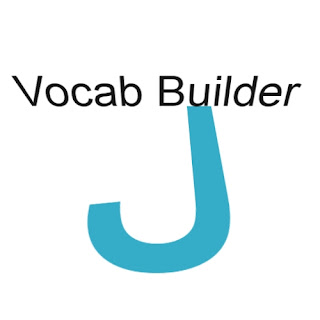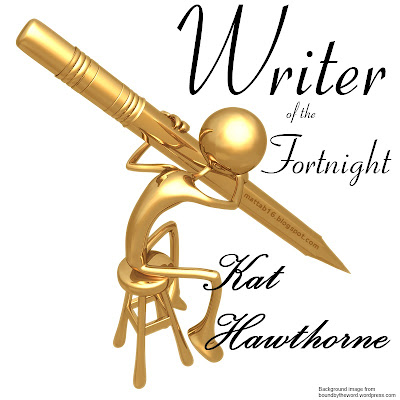I've started a new blog in which I will post about my experiences going through university. Here's the first post:
University Matt: A Bit About Me
Thanks
Matt
Learner, Reader, Writer
Writing articles, book/film reviews, opinion posts and snippets from my works in progress
Thursday, August 22, 2013
Thursday, March 7, 2013
Writer of the Fortnight and Hiatus
Welcome to Writer of the Fortnight. I know technically it has been more than a fortnight, but oh well. This is also going to be my last post for the foreseeable future. After receiving my exam results today, I have decided to cut back on a lot of things, and seeing as this blog doesn't get many views, it makes sense to stop posting and focus on my studies. Perhaps I'll start it up again during the Summer Holidays, I don't know.
This fortnight's award goes to a writer I have mentioned before. Her dark tales and sharp wit make her stories and poems horrifically enjoyable reads. She has many short stories published and has recently written one aimed at young adults. As she intends to publish this too, I won't post a snippet, but here is the link to it in her portfolio.
It is, of course, Kat Hawthorne:
I may not be able to post a snippet of the story, but I will post an excerpt from her poem, The Cuckoo Clock (with cuckoo missing):
Thanks
Matt Bird
This fortnight's award goes to a writer I have mentioned before. Her dark tales and sharp wit make her stories and poems horrifically enjoyable reads. She has many short stories published and has recently written one aimed at young adults. As she intends to publish this too, I won't post a snippet, but here is the link to it in her portfolio.
It is, of course, Kat Hawthorne:
I may not be able to post a snippet of the story, but I will post an excerpt from her poem, The Cuckoo Clock (with cuckoo missing):
It hangs behind the nightstand yonder, lost amongst the work I ponder,Tickless cogs left long forgotten, its voice mismatched and now uncertain Muted chimes which thump asunder are nothing but a twitching blunderIt measures not the time nor hour, its eyeless face drawn and dour The cuckoo clock with cuckoo missing‘d long lost track of faithless hoursLost amongst the work I scour.This poem was entered into a contest (not yet judged) to write a poem to feature on the front of the CSFS's dark fantasy forum, The Grind. The poem had to draw influence from Edgar Allen Poe's, The Raven. I think it does so very well and with a hint of dark humour.
Thanks
Matt Bird
Sunday, March 3, 2013
Quill Award
Just a quick post today. Hopefully, I'll be more active in the coming weeks.
Last night I 'attended' an awards ceremony online at writing.com called The Quill Awards. There are loads of awards to be won for all the genres, writing types, etc... available on WDC.
My group, The Coffee Shop for the Fantasy Society, won one of them. Best Fantasy/Sci-fi 2012!
I am thrilled that the CSFS has been honoured in this way, especially as it was a public vote and against such fantastic contestants.
Thanks
Matt B
Saturday, February 16, 2013
What is Newton's Second Law?
 |
| Science for Writers: Newton's Second Law 'Apple on books' from stockvault.net. Science for Writers Logo and text created by me. |
I have put important words in bold. These words are important in physics and I will refer to them throughout the post. It isn't overly important for you to know the exact meaning, so long as you get the gist of what I'm talking about you will be fine following this post.
Writing Links are in italics and these discuss how the science could be used in writing.
What does it state?
Law II: The alteration of motion is ever proportional to the motive force impressed; and is made in the direction of the right line in which that force is impressedLets break it down before going further:
- Alteration, means change.
- To motion is movement.
- Proportional means a change in the first thing causes a change in the second.
- A motive force is what makes something move
- The right line means the direction in which the movement is happening
- Impressed means acting on the object
Now we've split it up, it is easier to understand. In actuality it is just a wordy way of saying, 'the amount an object's motion changes is equal to the force making it change'.
As with all good laws in physics there is an equation to go with it.
Thursday, February 7, 2013
Vocab Builder: K
 |
| Vocab Builder: K Logo by me (my best, personally ... hence the size) |
A strong vocabulary allows you to select the precise word for what your trying to say.Whether you're trying to implement a kanban system in your company or keelhaul a kibitzer, or even offering a king's ransom whilst kvelling over your recent success in a bank heist, you need a strong vocabulary.
It has been commented that it is all very well knowing these words but one mustn't show off vocabulary for the sake of it. Remember if you want to use these words make sure you are using them correctly and because they are the right word for the job. Let's start:
kanban
noun
Meaning: just-in-time manufacturing/delivery strategy
Sentence: The orcs weren't known for their organisation, so when the elves took over they implemented a kanban in all the major manufacturing chains
Origin: Japanese. 看板 (pronounced kanban) means 'billboard' in Japanese. Toyota first developed the technique
Tuesday, February 5, 2013
Writer of the Fortnight
Welcome to the second Writer of the Fortnight (plus a day). Last time I gave the award to O. G. Patterson. As before, this time the award goes to a member of Writing.com - a fantastic site for all aspiring (and in some cases published) authors.
The award this fortnight goes to an writer who has supported me on the site from very early on. She is very insightful when it comes to writing, and not just in technical areas. She always looks at the story being told and the characters telling it far more than comma usage and is always full of suggestions for how to improve and enhance a story whilst keeping the author's voice in tact.
The recipient of the Writer of the Fortnight award this time is Amanda Willcox. Specifically for her tale The Halls of Neptune.
The Halls of Neptune really shines in its voice. That of an ex-captain telling his tale. Here is the opening paragraph:
The award this fortnight goes to an writer who has supported me on the site from very early on. She is very insightful when it comes to writing, and not just in technical areas. She always looks at the story being told and the characters telling it far more than comma usage and is always full of suggestions for how to improve and enhance a story whilst keeping the author's voice in tact.
The recipient of the Writer of the Fortnight award this time is Amanda Willcox. Specifically for her tale The Halls of Neptune.
 |
| Writer of the fortnight - A. E. Willcox Original image from boundbytheword.wordpress.com, edited by me |
Sunday, February 3, 2013
What is Newton's First Law?
 |
| Science for Writers: Newton's First Law 'Apple on books' from stockvault.net. Science for Writers Logo and text created by me. |
I have put important words in bold. These words are important in physics and I will refer to them throughout the post. It isn't overly important for you to know the exact meaning, so long as you get the gist of what I'm talking about you will be fine following this post.
Writing Links are in italics and these discuss how the science could be used in writing.
What does it state?
Law I: Every body persists in its state of being at rest or of moving uniformly straight forward, except insofar as it is compelled to change its state by force impressed.Lets break it down before going further:
- A body, is an object. An apple is a body. A car is a body. You are a body.
- To persist means 'to continue'.
- A state is the condition something is in.
- Rest means not moving. Being in a state of rest means the body is not moving.
- Uniform means constant. Being in the state of uniform motion means moving in a straight line at a constant velocity (for now just think of velocity as speed).
- Change means to do something different to what it is currently doing.
- A force makes a body do something.
- Impressed is just a fancy way of saying that the force acts on the body.
Now we've split it up, it is easier to understand. In actuality it is just a wordy way of saying, 'Every object continues what it is doing until a force acts on it that makes it change.'
As with all good laws in physics there is an equation to go with it:
Thursday, January 31, 2013
Vocab Builder: J
 |
| Vocab Builder: J. Image logo created by me. |
A strong vocabulary allows you to select the precise word for what your trying to say.Whether you make jardinières, or are a jeunesse dorée you should have a strong vocabulary suited to your situation.
It has been commented that it is all very well knowing these words but one mustn't show off vocabulary for the sake of it. Remember if you want to use these words make sure you are using them correctly and because they are the right word for the job. Let's start:
jardinière
noun
Meaning: an ornamental stand for flowers
or a garnish made of cooked pieced vegetables used for meat
or a garnish made of cooked pieced vegetables used for meat
Sentence: The orcs may be a feared race, but they were partial to jardinières on their human meat stew.
Origin: Old French. Jardin means garden, jardinière means female gardener
Sunday, January 27, 2013
Beta Testing
I was lucky enough to receive a key for the Closed Simcity Beta on Saturday. Whilst this beta only allows you to play 1 hour at a time and it ends tomorrow, it did make me think about how we as writers can test our ideas.
All betas need beta testers. In games they are gamers, in writing they are readers and reviewers.
So what are the purposes of the Simcity beta test and how do they relate to writing?
All betas need beta testers. In games they are gamers, in writing they are readers and reviewers.
So what are the purposes of the Simcity beta test and how do they relate to writing?
 |
| Simcity Closed Beta Cover Image from bearvilleinsider.com |
Server Stress Testing
For a game like the new Simcity making sure the servers can handle all the users (as it is an online only game). Server stress testing essentially checks how many users a server can handle before it buckles. The Maxis team would then know how to configure the real game servers when it is officially released.
For writers we can liken stress testing to character limit testing. How many characters can a single scene, or indeed the whole story, handle before the reader buckles and says 'I can't handle this many characters!'
If a reader says they are confused, it may be that you have too many characters. Look at each of your characters and work out if they are strictly necessary. If not then you might want to consider cutting them.
Performance
Saturday, January 26, 2013
Can you store data in DNA?
I have put important words in bold. These words are important in science and I will refer to them throughout the post. It isn't overly important for you to know the exact meaning, so long as you get the gist of what I'm talking about you will be fine following this post.
Writing Links are in italics and these discuss how the science could be used in writing.
What is DNA?
 |
| DNA Image from astrochem.org |
Each 'rung' on this ladder like structure consists of two nucleobases. These bases are parts of the genetic code. There are a total of 4 bases that can appear in a DNA molecule: Adenine, Thymine, Cytosine, and Guanine.
There are specific rules to how these bases can combine. A can only connect with T, and C can only connect with G. Each base pair is made up of one of those pairings. A is connected to T by 2 Hydrogen Bonds (that is connected by the Hydrogen atoms in their structure), and C is connected to G by 3 Hydrogen Bonds.
But, DNA is more than just 4 types of bases. Each base is also part of what is known as a Nucleotide. A Nucleotide consists of a Phosphate group, a sugar with 5 Carbon atoms (called deoxyribose) and the base (A, T, C, or G). The Phosphate group connects to the sugar of another Nucleotide, and one side of the ladder is formed. The other side is formed in exactly the same way. Both sides are then connected to each other by the Hydrogen Bonds between bases I mentioned earlier.
Writing Link: If DNA is what codes for everything in our bodies, imagine the power a villain would
Subscribe to:
Comments (Atom)


